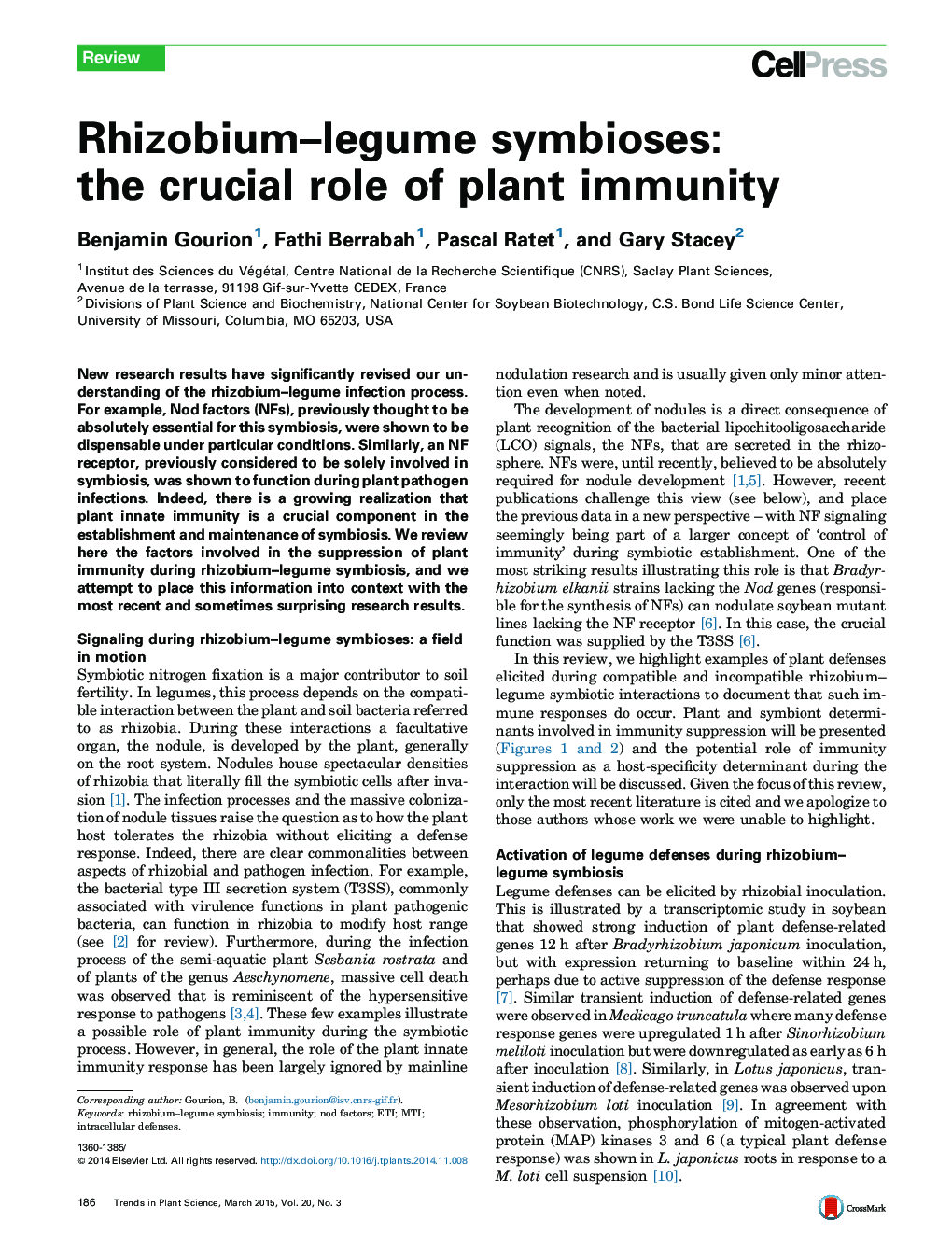| Article ID | Journal | Published Year | Pages | File Type |
|---|---|---|---|---|
| 2825808 | Trends in Plant Science | 2015 | 9 Pages |
•Nod factors that elicit legume nodule organogenesis also suppress plant immunity.•The rhizobial type III secretion system (T3SS) can influence host range.•Resistance gene-mediated immunity can impact upon rhizobial host range.•Management of host defenses is also important for the maintenance of symbiosis.•The plant growth environment can impact upon plant defense and symbiosis.
New research results have significantly revised our understanding of the rhizobium–legume infection process. For example, Nod factors (NFs), previously thought to be absolutely essential for this symbiosis, were shown to be dispensable under particular conditions. Similarly, an NF receptor, previously considered to be solely involved in symbiosis, was shown to function during plant pathogen infections. Indeed, there is a growing realization that plant innate immunity is a crucial component in the establishment and maintenance of symbiosis. We review here the factors involved in the suppression of plant immunity during rhizobium–legume symbiosis, and we attempt to place this information into context with the most recent and sometimes surprising research results.
